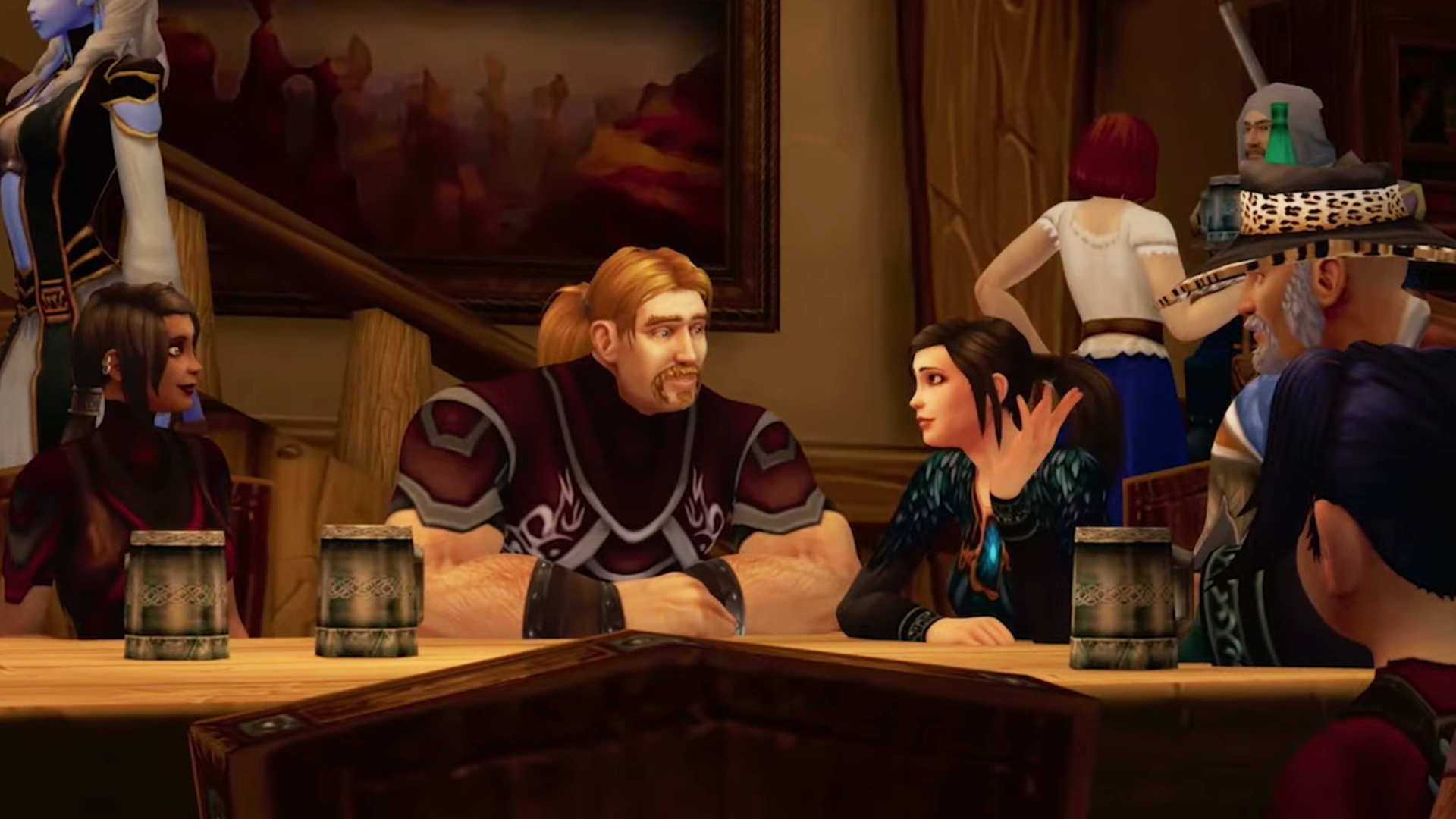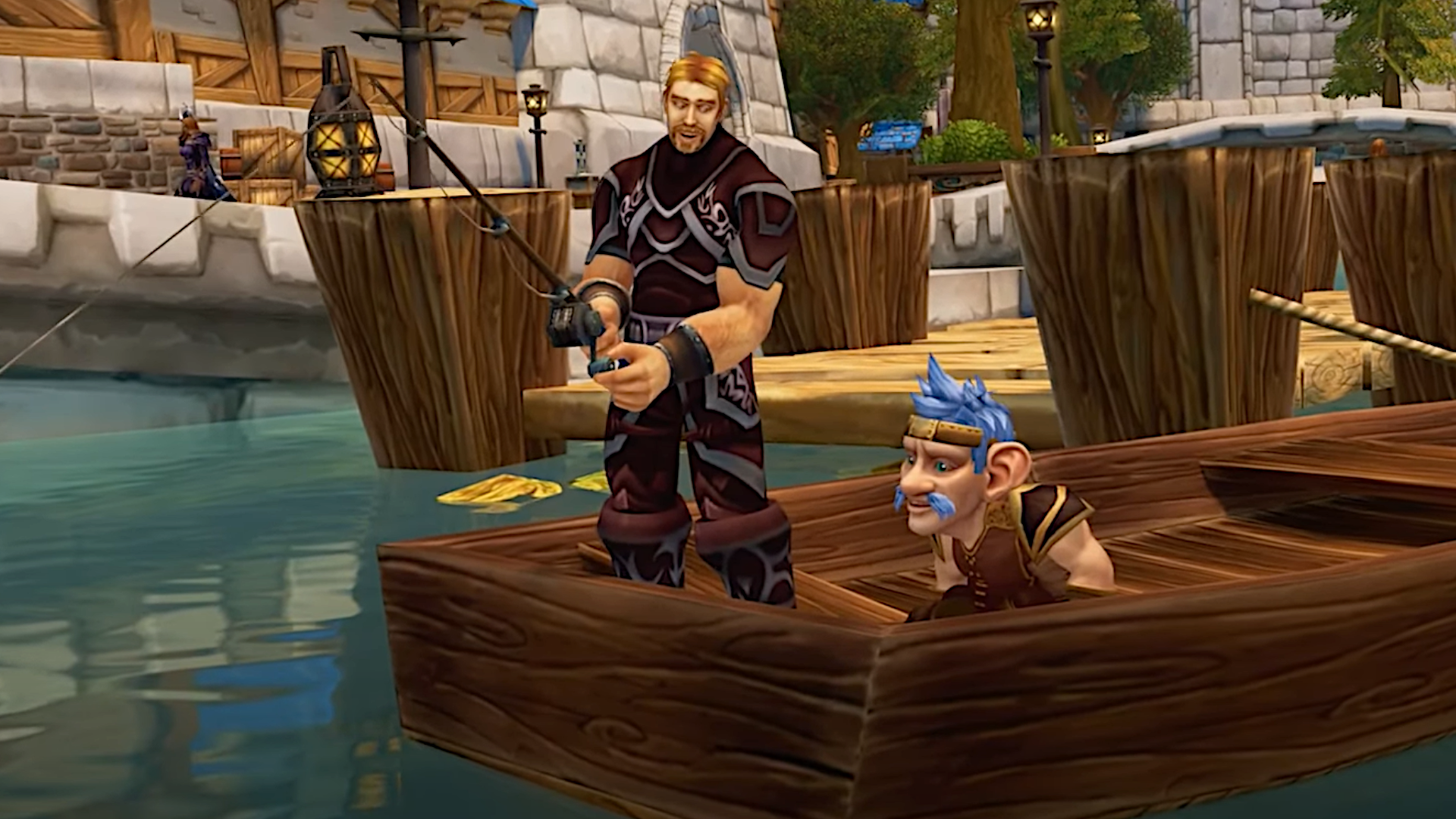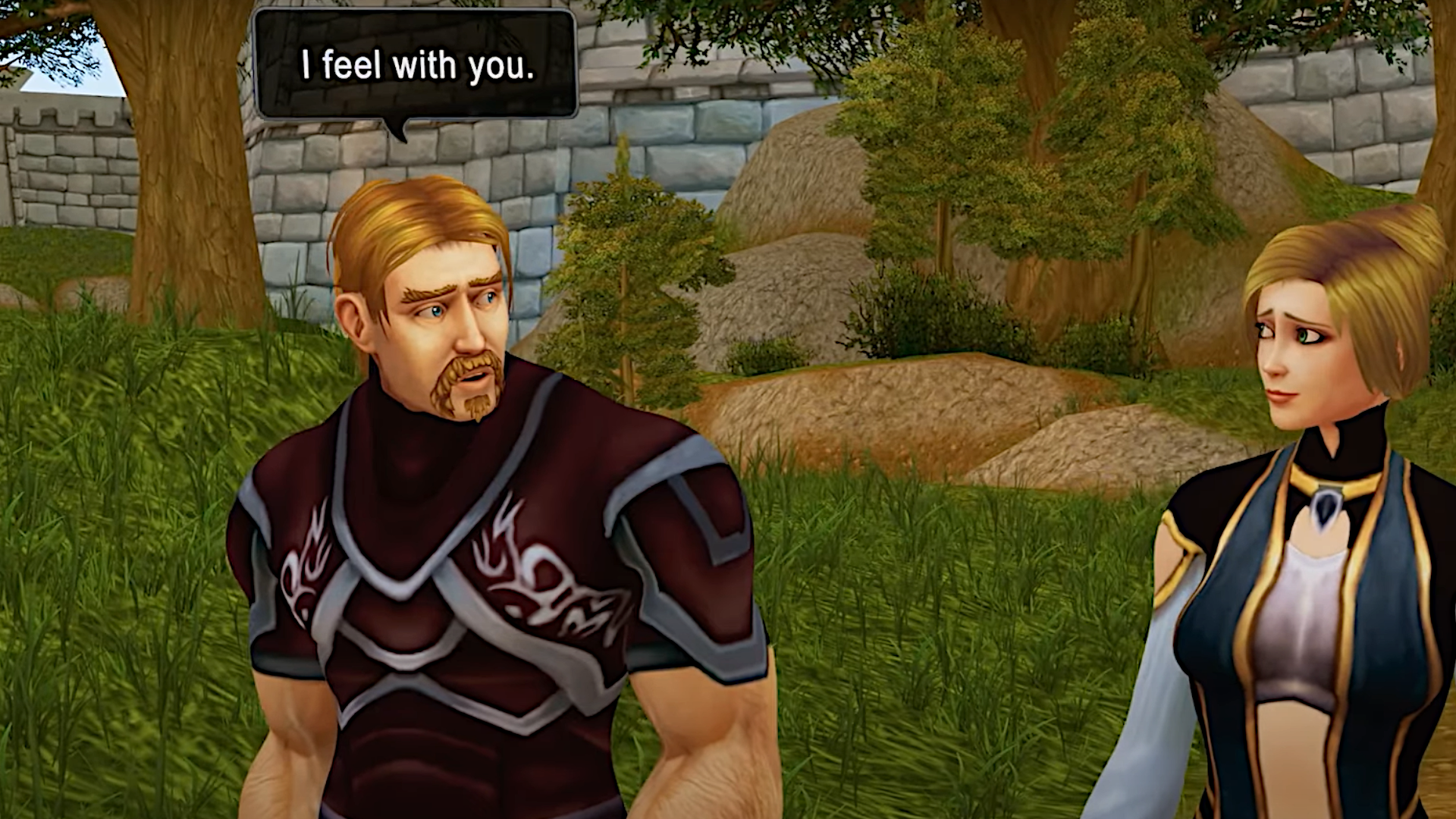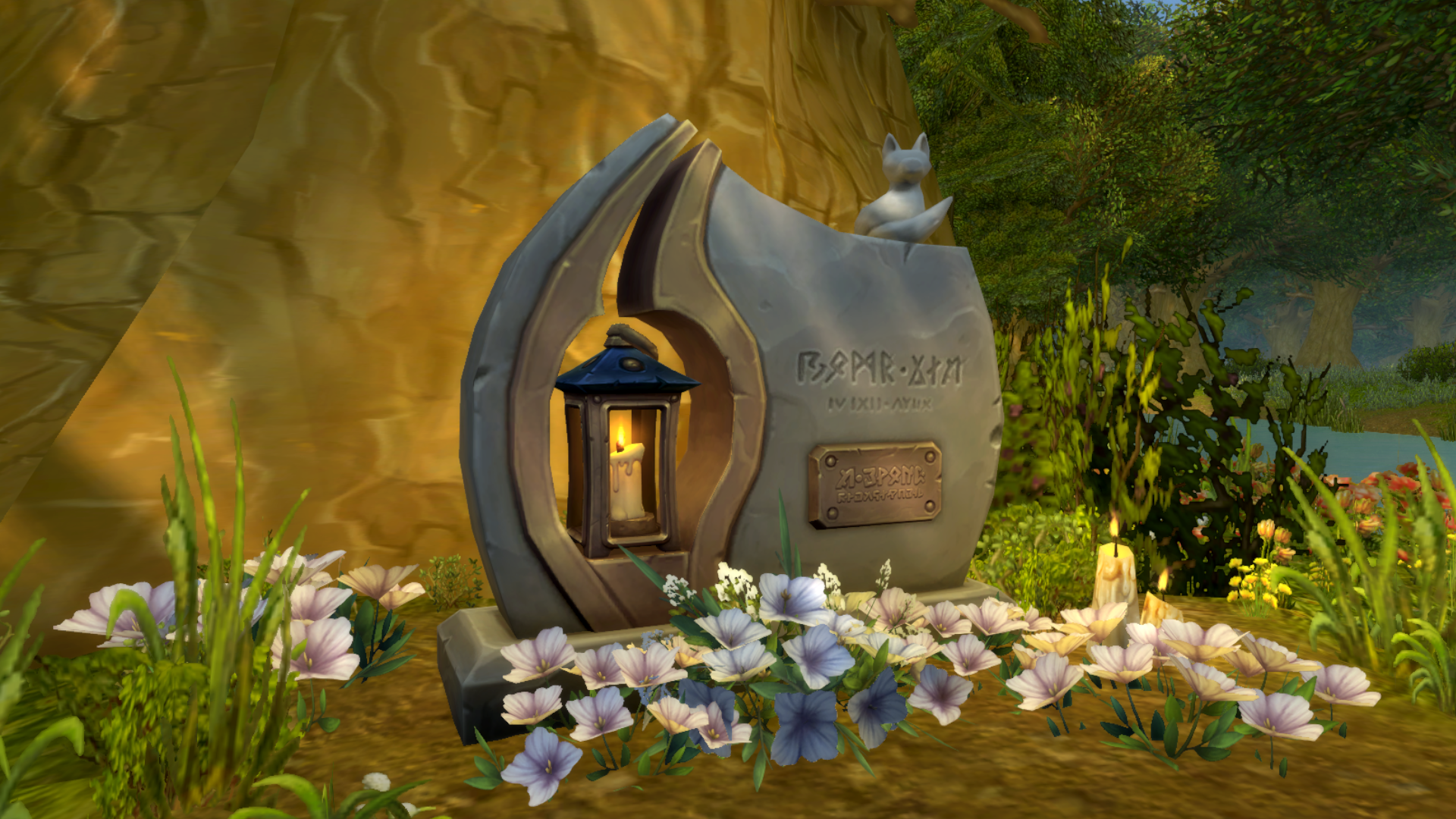
The Remarkable Life of Ibelin didn't touch my heart so much as barged in, broke some bones to reset them for healing, and left me a puddle of tears in the emotional ER. It's a deeply impactful and heartfelt story about the vital importance of online community in the lives of those who'd otherwise be isolated and alone. In case you aren't familiar, the film is a documentary following the life of the late Mats Steen, which came to Netflix this year after a successful release in Norway in March.
Mats Steen had something called Duchenne muscular dystrophy (DMD), a medical condition that causes muscles to weaken over the course of a person's life. There are several kinds of muscular dystrophy, but Duchenne is characterised by its severity, and has a life expectancy of around 20 to 30 years. Steen died in 2014, aged 25, and you can read his blog in full (including the farewell message from his parents) here.
Steen was also a World of Warcraft player, and someone whose passing made such an impact on his digital community that his parents, shocked by the outpouring of supportive emails from people who knew him, decided to tell his story to the BBC in 2019.
I recently interviewed the documentary's director, Benjamin Ree—and also had the honour of attending an in-person roundtable at Netflix with Ree, Ibelin's voice actor, and several disabled gamers—some of whom work with the charity Muscular Dystrophy UK.
Ree's story is one that's been told before, so I'll summarise it here in brief: After reading the aforementioned BBC article, shared via Steen's uncle (who was Ree's teacher at the time), the director decided to get in touch with Steen's parents. In doing so, he discovered an absolute wealth of documentation and a story he needed to tell.
"It's kind of rare," Ree admits, "to have that much of a digital archive about a person who's not a celebrity. You know—thousands of texts, 70 hours of family videos. Mats wrote a blog, the funeral was filmed. It's very rare that you have so much material left behind."
The first time Ree read the BBC article, it prompted questions he wanted answered: “'Is it possible to experience close friendships in a game? Is it possible to experience love?'" Yes, it turns out, yes it is.
Home is where you make it

While the idea of online friendships being important probably isn't news to you or me, I think we've all been in a spot where that importance has been underestimated or misunderstood by outsiders to the hobby. My interview with Ree reveals that he was one of those people, initially, foreign to both World of Warcraft and the concept of roleplaying.
If you also don't know what MMO roleplaying is, it's sort of a mixture between improv acting and writing—you go into an MMORPG, you get in character, and you act out scenes with you and your chums over the span of months, sometimes years. I know this because the thing that got me into writing and videogames was roleplaying in WoW back when I was a teenager. During his own time in WoW, Steen played Ibelin, the head of his own detective agency.
"I had never played World of Warcraft before," Ree admits, though he did have a Nintendo 64. He seems genuinely very pleased that I get what roleplay is, as someone who had to spend three years editing a film to get the same point across.
My goal was that my 94-year-old grandmother would feel included, and she was part of the test audience of this film."
Benjamin Ree
"You know how many possibilities you have [in roleplay] … I couldn't read everything, but it was condensed down to 4,000 pages," he says, showing me an absolutely massive Google doc of roleplay sessions that Steen's friends saved via an external program. Ree explains to me that, like someone peering into the code of the Matrix for the first time, he saw a coming of age story in the reams of chat logs.
Ibelin the character had a first crush, went through relationship drama, went on adventures, and hung out with his friends. "I experienced the same things, but just in real life," Ree says, "just not inside of the game. And that was the goal, to include everyone in that [story] … My goal was that my 94-year-old grandmother would feel included, and she was part of the test audience of this film."
It's not as if this was an easy task, though. The documentary went through a heap of test screenings, and "after one year of editing the film, it didn't work at all." Ree then goes on to describe a cycle of interviewing, editing, and re-screening to make sure that even people who'd never touched a videogame in their lives could get the gist.
Crossing borders

As someone who has, regrettably, touched many videogames in my life, I found myself extremely moved while watching the documentary. When I was younger, I was a little socially isolated, and I found online games (and roleplaying) a huge comfort.
What struck me was how familiar Mats Steen's story felt, even though I'm several worlds away from understanding the depth of his struggles. I'm not alone, either—taking to forums and discussions after the fact, I kept seeing people relating to him, to that coming of age story that Ree identifies. I asked Ree why he thinks that's the case.
"That's a very good question. What's interesting is that a lot of men watched the film, and then filmed themselves and took pictures of themselves after watching it, crying—so in a way, they are also sharing their grief and their emotions virtually after watching the film. I've read messages from men that say 'I haven't cried since 1999, and this is the first time I cried since then', which is quite interesting.
"I've been thinking a lot about what you just asked me,” Ree went on. “I think it does touch something deep in us—the film is about friendships and online communities. I think many people who have experienced how close you can get to someone online without meeting them, they have most likely also had difficulties explaining that to non-gamers."
I think it does touch something deep in us—the film is about friendships and online communities."
Benjamin Ree
It strikes me, writing this out, that the documentary itself tackles the gulf in understanding between gamers and non-gamers. Some mild spoilers going forward, but the documentary briefly follows "Rumour", Ibelin's in-character love interest, who was piloted in the real world by Lisette.
While Lisette was failing at school, and absolutely needed to strike a better balance between real life and WoW, her parents hurt more than they helped by taking her computer away from her entirely. Cutting Lisette off entirely is shown to be a tragedy, because of course it is—while she needed to spend less time on the computer, taking her away from a support group was genuinely deleterious to her mental health.
Ree says that the documentary shows the vital importance of gaming communities to their players, displaying "it visually and emotionally, and that is very powerful". It allows people who've found sanctuary online to "feel seen. What might be difficult to put into words, is now shown emotionally and visually, and that, I think, touches many people on a deep level … One of the first viewings we had out of the finished film in Norway, a 15-year-old came up to me and said: 'I don't have any friends in real life. All of my friends are virtual, like through gaming.'
"He said: 'Thank you for making this film. Now I can show this film to my parents, and they will understand better.' And in a way, I think what he said there sums it all up. It's a community that hasn't been understood very well, and there has been a lot of prejudice against them, and now there's a film that really shows how powerful and close friendships you can have virtually."
Games are so important

I think it's easy to forget how vital online spaces can be to people, no matter what they're going through—whether it's more permanent physical or mental disabilities, bullying, abusive home environments, isolating relationships, or a lack of acceptance for their sexuality or gender identity.
Amid the sometimes vicious community dramas and sea of hot takes in online gaming spaces, The Remarkable Life of Ibelin has thoroughly reminded me that videogames are an important and irreplaceable part of peoples' lives. As much as they can isolate and hurt people, they can also save them and, in the case of Mats Steen, give them a quality of life they never would've had otherwise.
I'll have more to write about The Remarkable Life of Ibelin this week—including sharing the touching voices and stories of those with muscular dystrophy who attended the roundtable—but if you're looking for ways to help, Muscular Dystrophy UK has a fundraising program called Game On that'll help the charity to aid people like Steen on this side of the pond.







